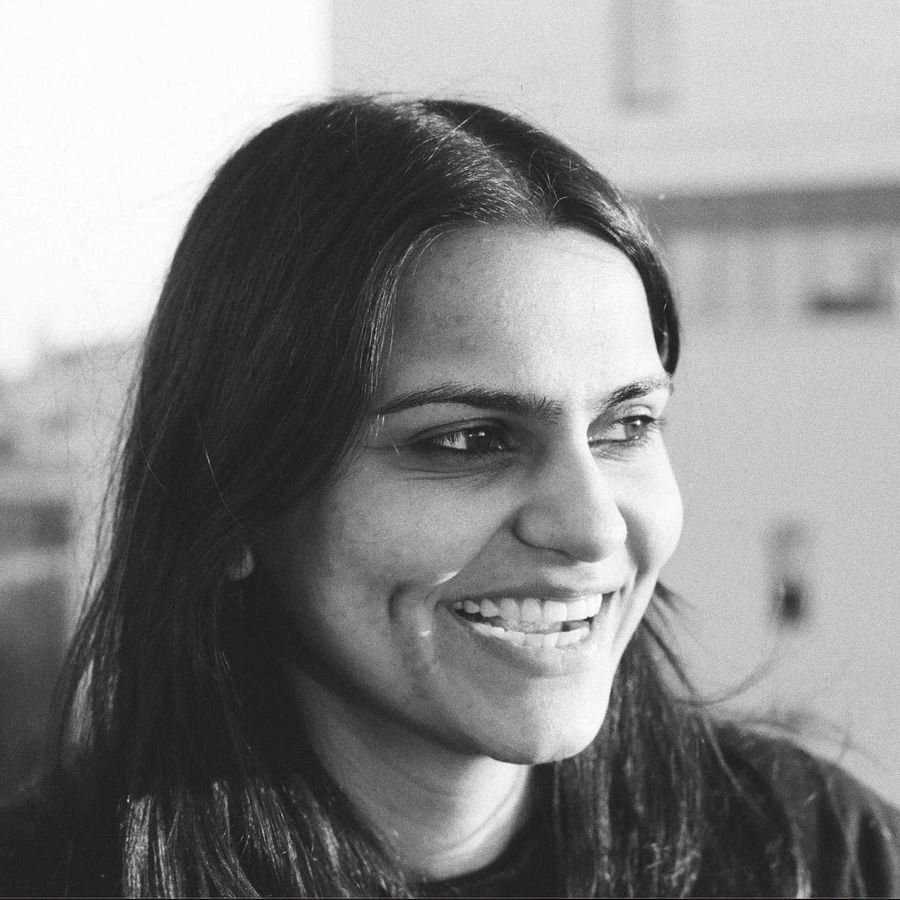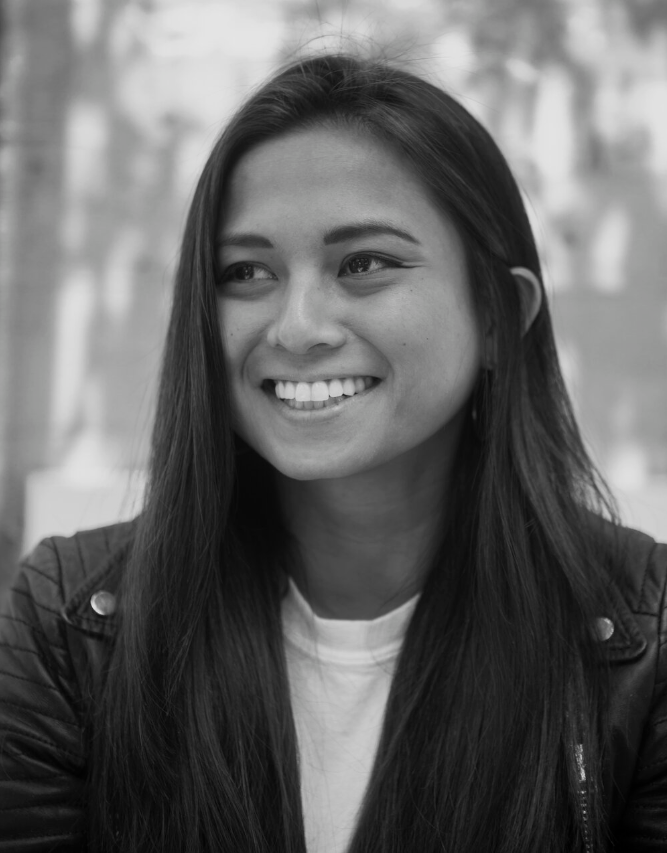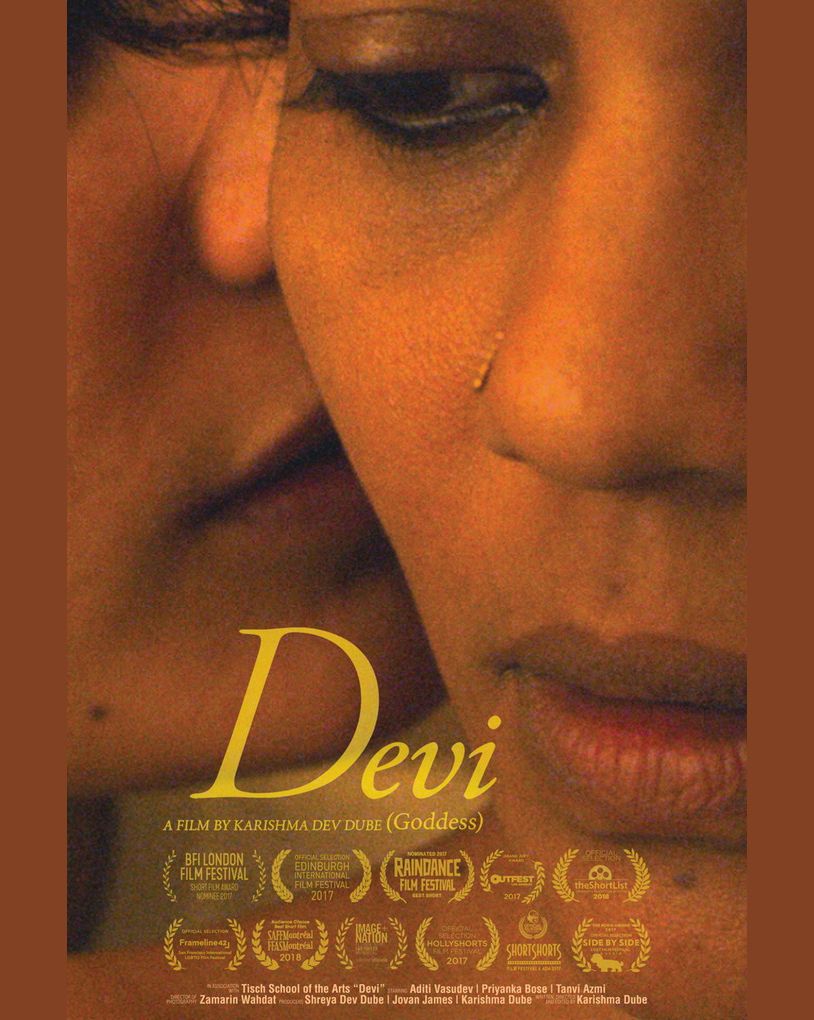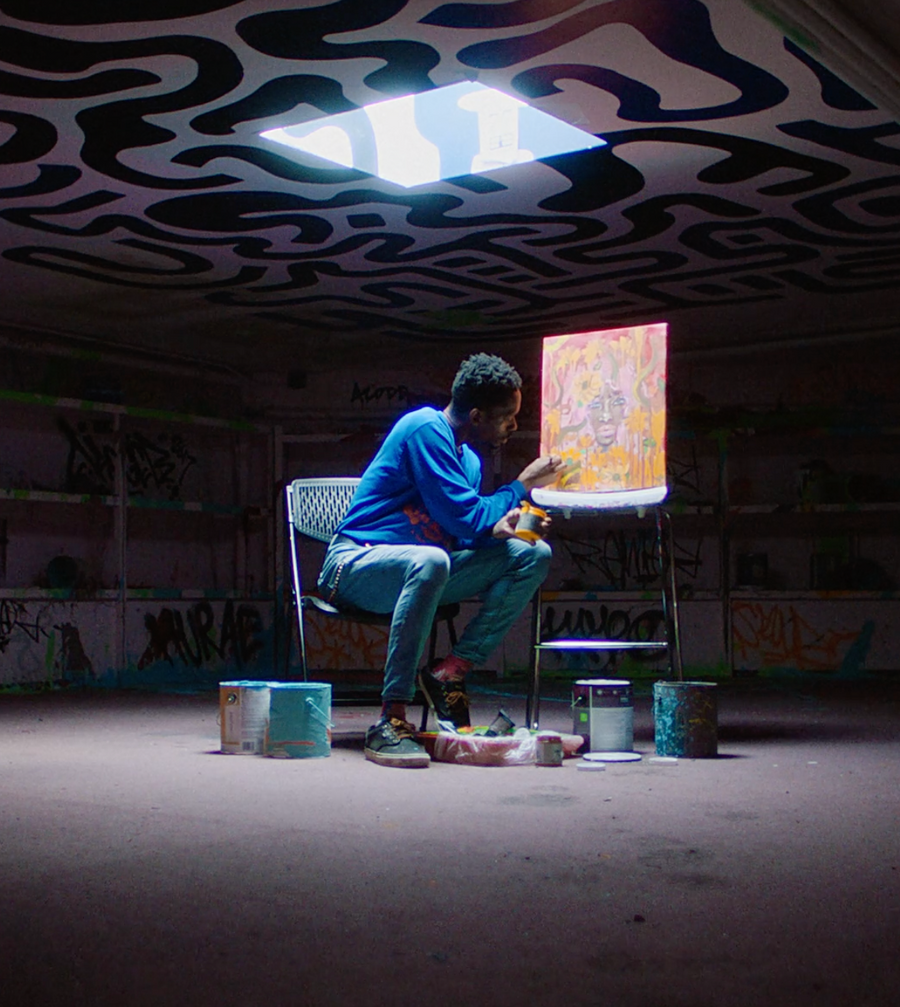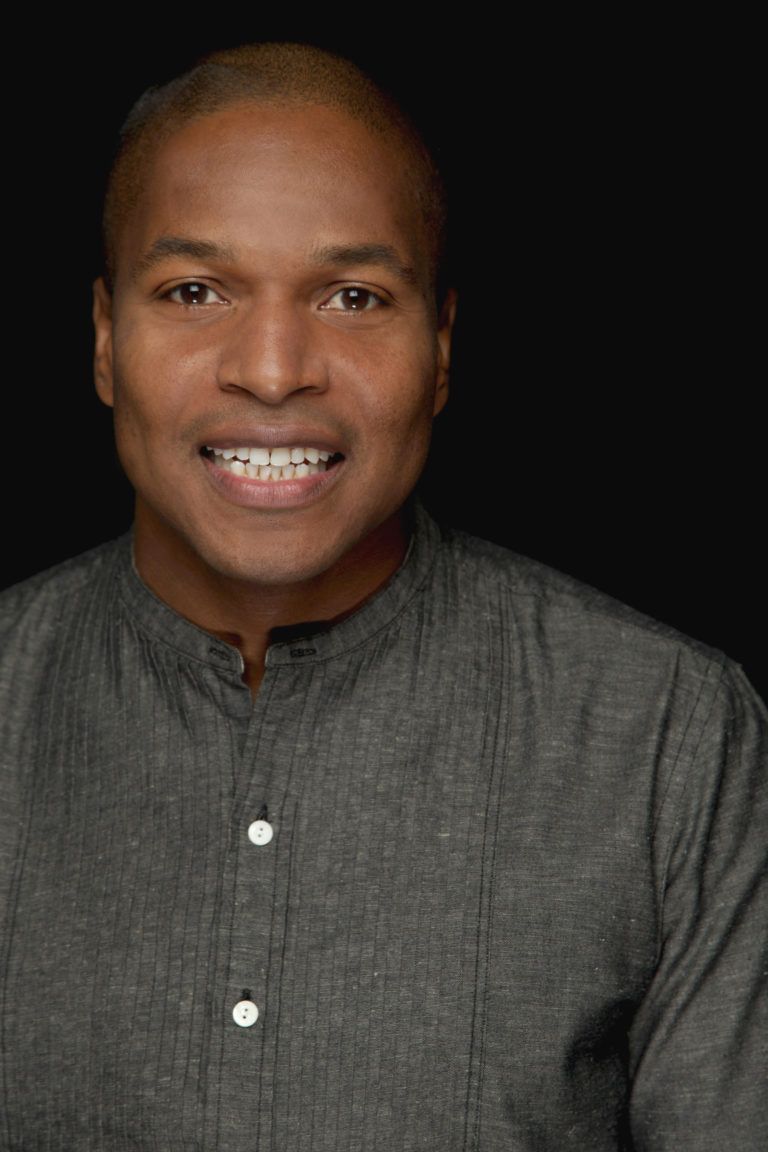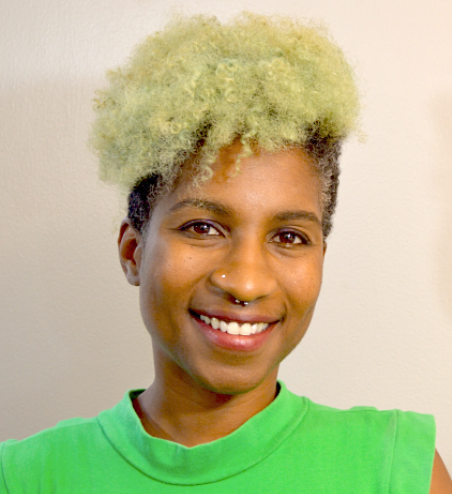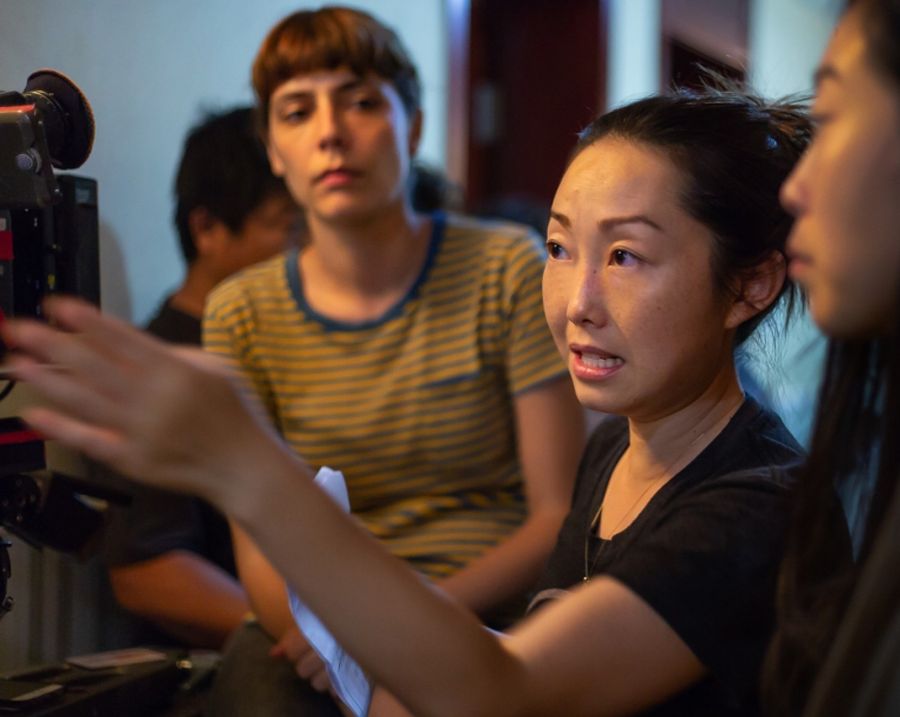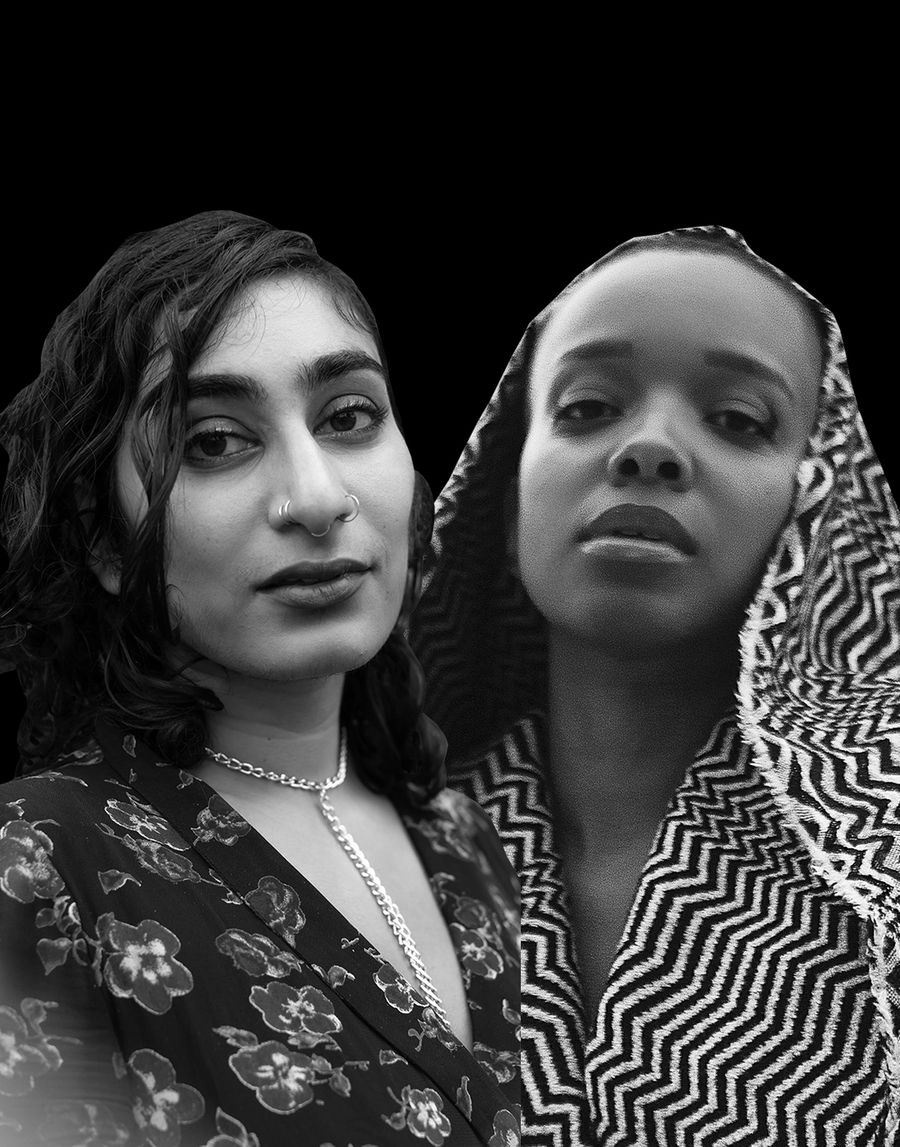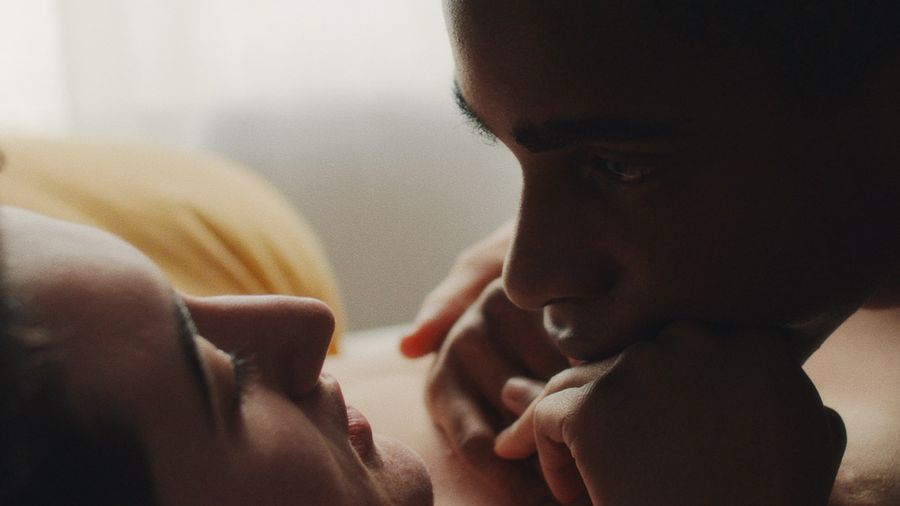All photos courtesy of "Devi"/Karishma Dube
FTW’s MEET series is a new editorial column highlighting up-and-coming FTW filmmakers sharing groundbreaking work with fresh takes and fresh perspectives.
Karishma Dube is a seasoned vet who's actually just getting started. The Indian writer/director, who cut her teeth in New York and is now based in LA, has such a signature naturalistic style that captures the rawness of real life you'd swear her shorts are just passion projects in between bigger dramas. Thus, it's a surprise that "Devi," a film about a young lesbian who risks it all for love with her childhood maid, is her second-year thesis film at NYU. The short made headlines at London Film Festival, LA Film Festival, Outfest LA, and Edinburgh International Film Festival.
Today, Karishma, who recently won the Student Academy Award for her thesis film, "Bittu," currently making the festival rounds, is premiering "Devi." It's the perfect introduction to a director who one day simply won't need one. Catch it here and get to know the talent on the rise.
FTW: What was the genesis of “Devi”?
Karishma Dube: A lot of this film stems from my relationship with my mother. I think in most Indian households, everyone is very over-communicative; there’s a lot of intimacy in all relationships but very often the most important things are never discussed.
With "Devi," I was writing versions of women I know and have grown up with. I wanted to put them in a container that examined class and sexuality in India from a perspective that felt familiar to me. There are 100 different perspectives of this in India; it changes with every household and family. This is more specific to the kind of family I grew up in. Growing up I never really thought my family would be a problem whenever I’d decide to come out to them, which ultimately was kind of true. In this film, Tara’s sexuality is not what is vehemently opposed, it’s the abuse of her own power when trying to express her sexuality that is punished.
As a writer, writing up to a point where the protagonist doesn’t do the right thing was exciting to me at the time. In retrospect, there were many times in my life when I messed up or didn't say something when I could, especially when I held the power in the dynamic, or when the scales were tipping on my side. For me, the climax of this film is a moment that Tara looks back on and it does define her in some sense—her future self.
There's always that unspoken, underlying tension that's so hard to articulate, but it's still there no matter what the dynamics are.
Yeah, there's a sense of a power dynamic that's a bit uncomfortable in this film. The scene when Devi and Tara actually do come together and kiss, I was really aware, as were the actors, of a shift of power from a moment-to-moment basis because Devi is in a position that is technically subservient to Tara's no matter how young she is or how inexperienced Tara is. Devi was beyond that and further down the line in expressing her sexuality than Tara was. There's a sense of power that they both hold in that scene and there's an abuse of power from both sides. We were all really careful and particular to be able to express that in the shots that it at least, in this moment, went both ways.
What were the conversations like with your family when you were making this?
We talked a lot more about language. My mother, who is actually in the film in the party scene, speaks fluent Bengali, which is also the language that's spoken in the film. I can understand it completely, but I can't speak it very well. My nanny who helped raise me is Bengali as well. So my mom and her are very close. They’d oscillate between being mothers and daughters and sisters to each other. I would speak to my nanny in Hindi and I would speak to my mom in English, and they would speak to each other in Bengali, so there was this barrier of language that was also really specific to the intimacies of each of our relationships. I talked to my mother and nanny a lot about their own experiences of this dynamic—how they came to grow close and when did that happen, how did they communicate with each other when they were raising me? The rest was a lot of just boring production conversations because it's shot in the house that I grew up in.
That's interesting you mention the language because it lends itself so well to the subject matter of the film and things getting miscommunicated or lost in translation.
My close relationship with my mom has been defined by these series of confrontations that are constant, but a lot of it was also because of the things that were not said. I'm fascinated with using language in stories. It’s often a very alienating tool in India. I went to this boarding school that is sometimes known for its elitism, even though it was very egalitarian in principle. But I remember there was always a sense that whoever can speak in English is better regarded than people who struggle with it, which is a notion I still detest.
I find prescriptive grammar to be a tool of establishing superiority constantly. Even now when people repeat my accent or when I don't really have a full command on certain words, I don't attach any shame to constantly learning it. It's not my language, it’s a colonial inheritance, but I'm slowly starting to understand that “correct language” is just an inconsequential principle, it’s the right kind of communication that is important.
In my most recent short, “Bittu,” I tried to write a very young protagonist who's very original, smart, and way beyond her years, but is constantly held back by her spoken English, which to be honest, is of no use to her in her world. How do you measure intelligence with language? In “Devi,” I was more using it as drawing a line between relationships, which was a little bit more intimate way of looking at the use of language.

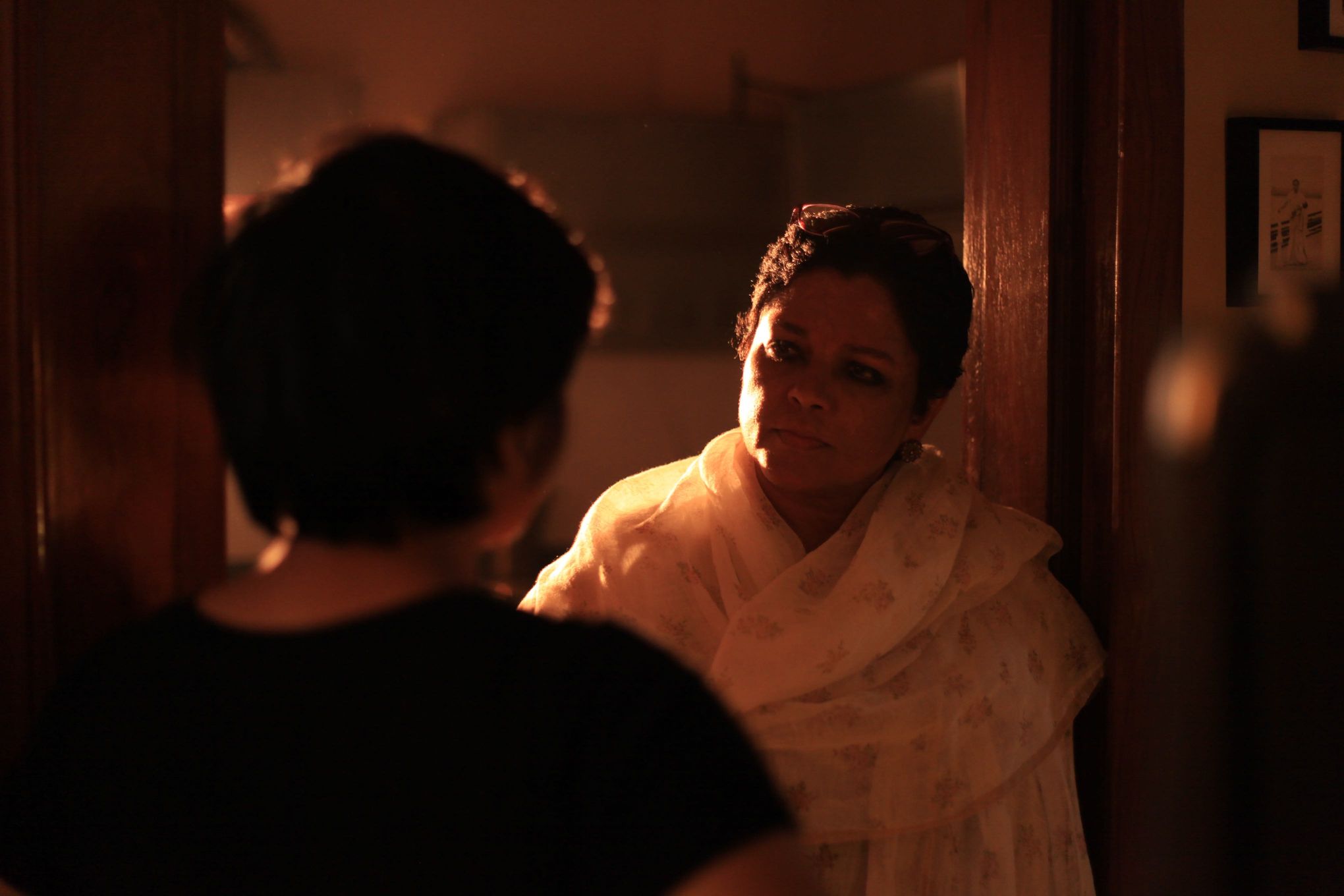
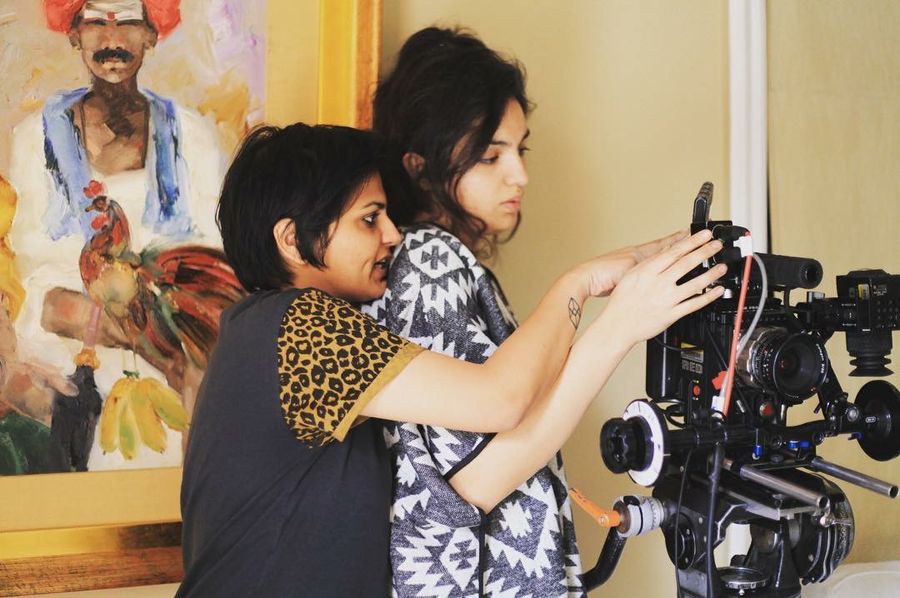
Going back to the production of it, what were intentional shots that you had planned out to depict their relationship? I noticed how much more intimate the shots with Devi and Tara were, and the space between the three of them in their scenes.
Zamarin Wahdat, my close friend and brilliant DP, shot this film beautifully. We had a lot of references from Indian photography; a lot of Dayanita Singh and Ketki Sheth. And many other old portraiture shots from India. I knew that I wanted to focus on the faces of the characters. It just organically happened that we used this 4:3 aspect ratio; I liked that it feels a bit cagey and claustrophobic, kind of how Tara feels in the film. You live a lot of your lives inside your house in India as opposed to finding who you are outside of it. I wanted to box her into the world as much as I could.
Also, the wides look bigger on a smaller aspect ratio, so I really liked how the house looked in that restrictive frame. Zama and I were really particular about the rules we created for each character and colors for each pair of characters. We were careful about everyone being covered with clean singles, so everyone would be glorified in their own frame, mostly in Tara's perspective, but almost always looking at Devi. We were specific about when they shared a frame together and when they didn't.
In the beginning, when you're introduced to all three women, they're in similarly constructed frames, but always in clean singles. I always felt like they were the same person in their own socio-age group, doing similar things outside the house, but inside the house were constantly bickering and divergent perspectives.
I remember in the last confrontation scene, they were meant to be moving around a lot in the script. We went crazy with the blocking for a while. Then Zama and I just figured out that it worked best if everyone was stagnant. Everyone is so immovable in their perspectives and there was something about cutting just between three portraits of observing this conflict. It felt more powerful. We pre-shot the whole film actually because we had that time and luxury to do it.
“I find prescriptive grammar to be a tool of establishing superiority constantly. [When] people repeat my accent or when I don't really have a full command on certain words, I don't attach any shame to constantly learning it. It's not my language, it’s a colonial inheritance. but I'm slowly starting to understand that 'correct language' is just an inconsequential principle, it’s the right kind of communication that is important.”
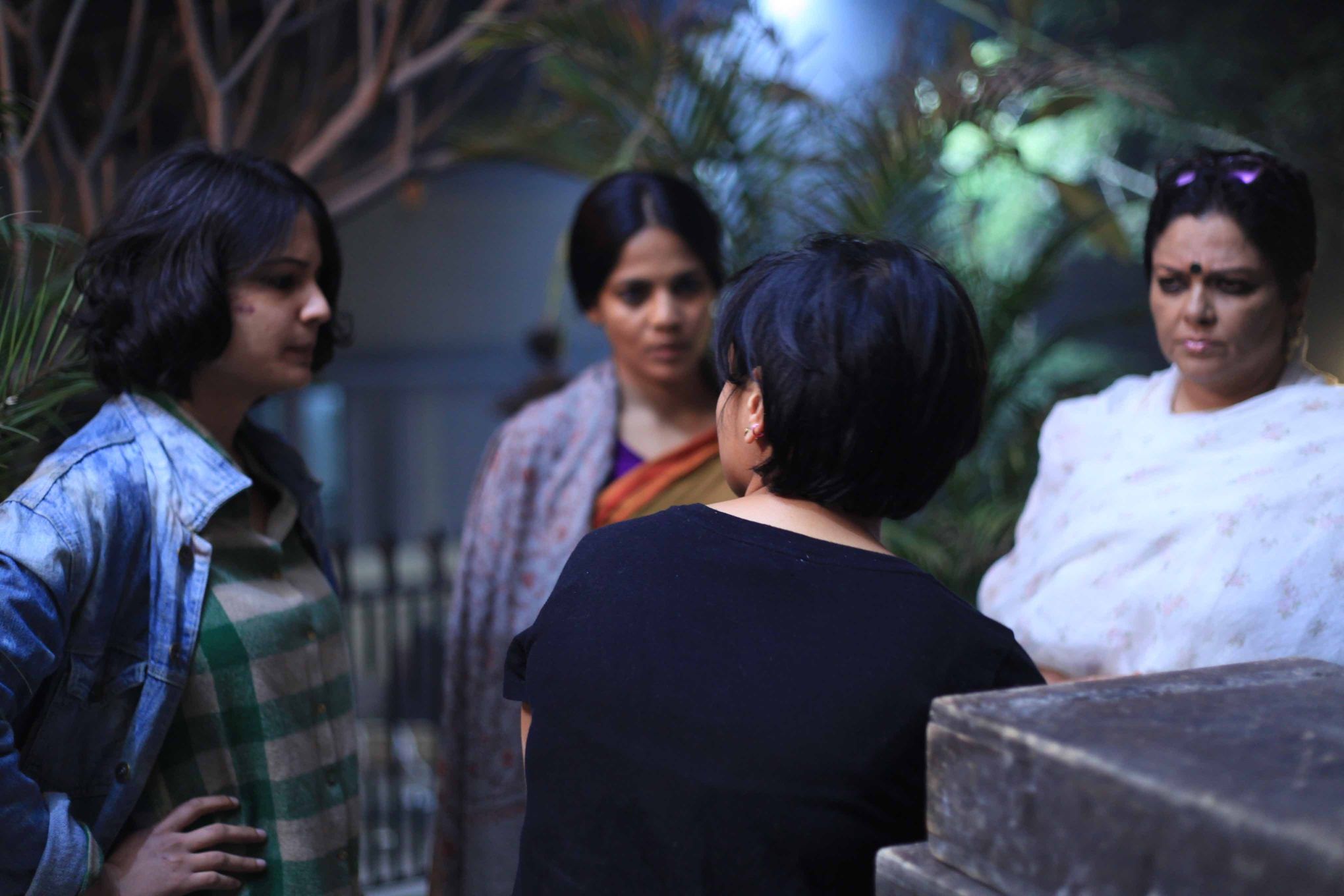
How did you pre-shoot the film?
I went to shoot in India with another friend of mine, Alec Davis. We shared the same crew and DP, and shot our films back to back. Zama would prep with him on his horror film in the mountains for a couple of hours, and I would wake her up pretty early and we’d find the frames for this coming-of-age film. We spent a lot of time trying to figure out how to make spaces feel different each time we cover it.
We just shot the film on our phones, finding the right lenses for each scene. A week before shooting the film we knew all the sequences well, editing in our heads. We had prepped so much that we barely spoke to each other on set. Zama and I were talking the other day and she mentioned, and I agree, that "Devi" felt like it was the first film we ever made—we formalized a lot of our practices and figured out how we like to work while making this film. I shot the film in my own house with my friends; it felt like a safe place to try anything. And when it worked well, it just helped me trust my instincts moving forward. It sounds cliché, but I guess I found my confidence as a filmmaker when making this film.
Before studying filmmaking at NYU, how did you get into filmmaking?
I always loved films. I used to watch a lot of films and then come back home and then drive my family crazy by just constantly recreating it. I was obsessed with the idea of recreating life or observing people I know very well. The reflection of life on-screen fascinated me as a kid all the time.
I never really thought about it seriously or considered it in a real way until I was in Bombay for undergrad living with my sister, Shreya Dev Dube. My sister's a cinematographer (who shot my thesis film, "Bittu") and at the time we were living together. She was just starting off in the city as a filmmaker. So I was lucky to be surrounded by writers, directors and actors all the time, it kind of demystified it for me a little bit.
My sister being in my life just sort of gave me the permission to try it as well. But I had never made a film before attending the grad film program at NYU. In that way, it was very foundational for me. I spent five years writing, editing, producing and directing films at NYU.
One of my questions was if you had a mentor. It sounds like your sister was one, but was there anyone else?
The whole community is really supportive at NYU. Kasi Lemmons has been a very close mentor; she was my directing teacher for “Devi.” I learned a lot from her work ethic and she makes an enormous amount of room for mentorship, which is also very inspiring just to be able to understand you have a place in the world and then you work hard to create the same space for people behind you.
I used to think you can't really teach it, but it's helpful to have someone who can tell you how to ask for what you need as a director. It’s one thing to pitch your film, but it's another thing to hold a room and to be able to convince someone opposite you that you are actually at the head of the film. There was a lot of how to perform as a director that I learned from Kasi.
Were there any other challenges for you personally?
Honestly, I think the impostor syndrome lives with you for a long time. I'm five-short-films old now, but every time I start it feels like it's the first time I'm doing it. Earlier the anxiety used to drive me crazy, but I kind of enjoy that feeling now. Especially with “Devi,” there were a lot of challenges because there were a lot of technical things that I was asking for that I didn't know were okay. Every time I'd ask for something I would always turn to my gaffer and really good friend Rhys Jones and say, "Can we do that? Is that actually allowed?" They were like, "Yeah, you can do anything you want."
And the time "Devi" came out, I wasn't really vocal about being queer. When the film found a life in festivals, I found so much support from the queer community that I felt like it helped me own who I was in some way in my work, but also in my relationships. I came out to my dad a couple of months after “Devi” was out in the world.
How have your shorts opened up doors for you?
More than anything they’ve helped me investigate who I am as a filmmaker by just trying things. “Devi” and “Bittu” are so different from each other that it demanded very different things from me as a director on set. They allowed me to see how far I could go outside of my comfort zone, but also how to always keep it personal.
The films have helped me go into myself more, which is the best I could do in film school. It's the only time you have permission to try and fail. And I took that very seriously. I’m grateful to have found a lot of validation on the other side of it, which is really reassuring.
I’m working on two features right now. One I’m producing for my close friend and collaborator, Mary Evangelista. The other one is my first feature as writer/director and is inspired by family in NE India. I'm just ready for quarantine to be over and get to work again.
What are your visions for yourself as a filmmaker?
As a filmmaker, I like to detail women's experiences in quotidian yet pivotal moments in their life. I'm interested in exploring the moment of collision between traditional and contemporary mores that complicate the moral and emotional life of an individual.
Karishma Dev Dube
Karishma Dev Dube is an Indian filmmaker based in New York.A recipient of the Dean’s fellowship, Karishma recently graduated from NYU’s Film Program. Her award winning short film Devi (Goddess), has played 57 festivals worldwide including BFI, Edinburgh FF and Outfest LA where it won the Grand Jury Award for Best Narrative Short. Her most recent short film, BITTU is a Student Academy Award Finalist and has been selected has Telluride Film Festival, BFI London Film Festival and Palm Springs ShortFest. She is currently producing her first feature length film BURNING WELL that was a part of Sundance Talent Forum 2019 and Tribeca All Access 2020.She can be reached at [email protected].
